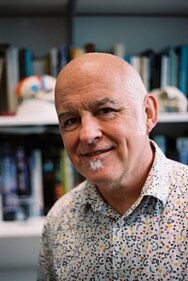Professor Matthew Cobb, University of Manchester
There have been many genetic revolutions: The realisation that characteristics could be inherited in the 18th century; Mendel’s experiments on hybrid pea plants in the 1850s; the rediscovery of Mendel’s work in 1903; the identification of the genetic role of DNA in 1944; the discovery of the structure of DNA in 1953; the advent of genetic engineering in 1972. And yet none of these moments was immediately transformational. Even the description of the double helix in 1953, often seen as a striking example of a radical breakthrough, a single definitive moment, did not settle the question of the nature of the genetic material. For nearly a decade afterwards, many scientists continued to think that proteins played a role, while the genetic role of DNA in multicellular organisms was demonstrated only in the 1970s. Through the history of our attempts to understand heredity we can perceive something of the history of science and how scientific revolutions are rarely immediately perceptible at the time. The wheel of scientific history turns, but much less rapidly and dramatically than appears in retrospect.
Professor Matthew Cobb is at the University of Manchester where he studies the sense of smell in maggots and Neanderthals. He is also interested in the history of science and has published books and articles on the history of biology, from the 17th to the 21st century, and two books on the history of the French resistance. He is currently writing a biography of Francis Crick.

